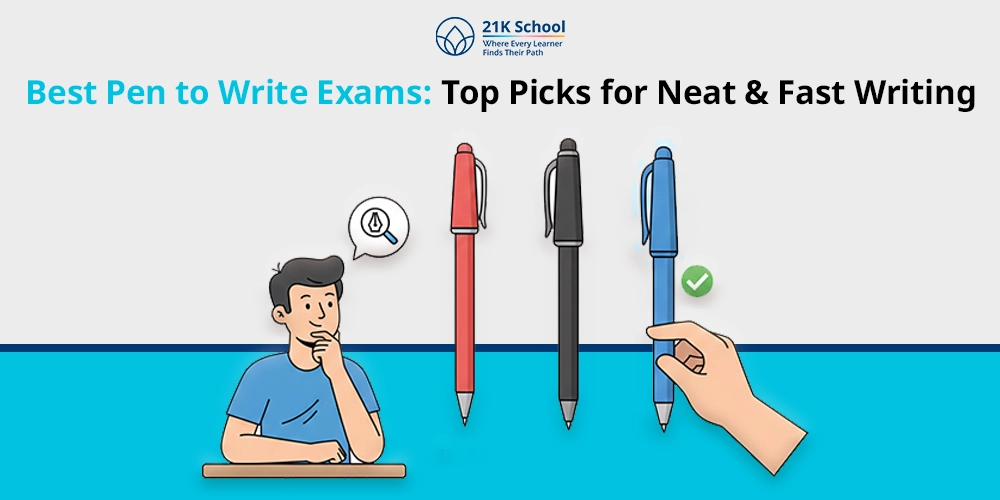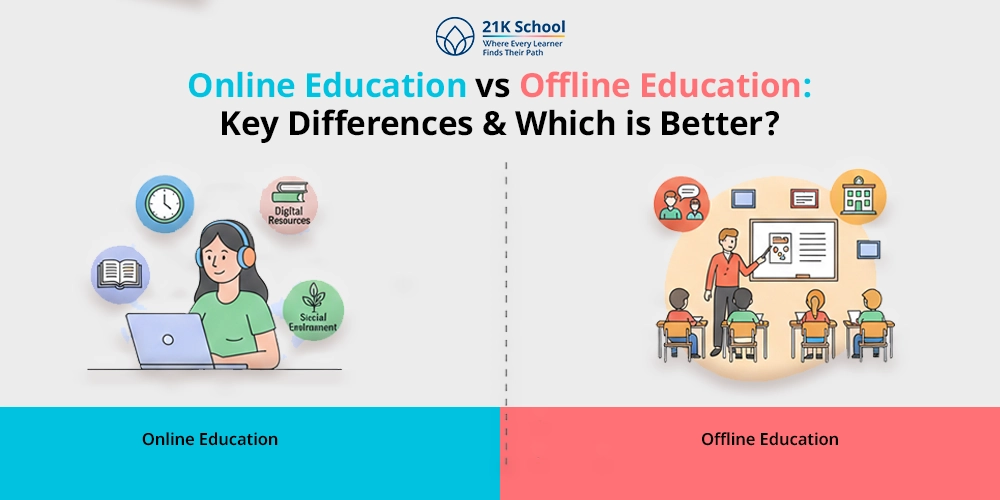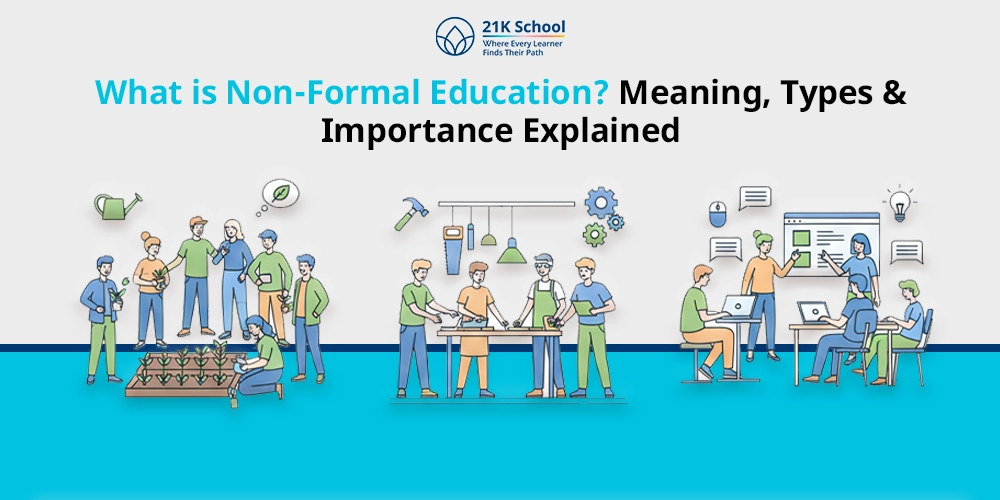
The world is filled with lots of information which students, teachers and parents need to deal with. That’s why analytical skills become necessary.
Whether kids are dealing with complex math problems, interpreting literature homework, or using scientific data for experiment, students require strong analytical thinking skills.
Analytical skills empowers students to elaborate and understand the information, identify patterns, and drive meaningful conclusions for further use.
This skill not only improves academic performance but also provides an environment for improving problem-solving skills, critical-thinking skills, and confidence for real life challenges.
Read on to learn more about, how to build confidence in a children ?
So, in this blog we will explore how educators, parents, and students themselves foster better analytical skills and tips to sharpen them.
Contents
- What are Analytical Skills?
- How to Improve Analytical Skills: Effective Ways
- 1. Read Widely
- 2. Question Assumptions
- 3. Consider Multiple Perspectives
- 4. Define the Problem
- 5. Evaluate Information
- 6. Generate Potential Solutions
- 7. Analyze and Evaluate the Solution
- 8. Implement The Right Solution
- 9. Learn Statistical Methods
- 10. Utilize Data Visualization Tools
- 11. Seek Feedback
- 12. Reflect and Review
- 13. Apply Skills in Daily Life
- 14. Seek Out Opportunities
- 15. Communicate Findings Effectively
- Tips to Think in Analytical Way as a Student
- Conclusion
What are Analytical Skills?
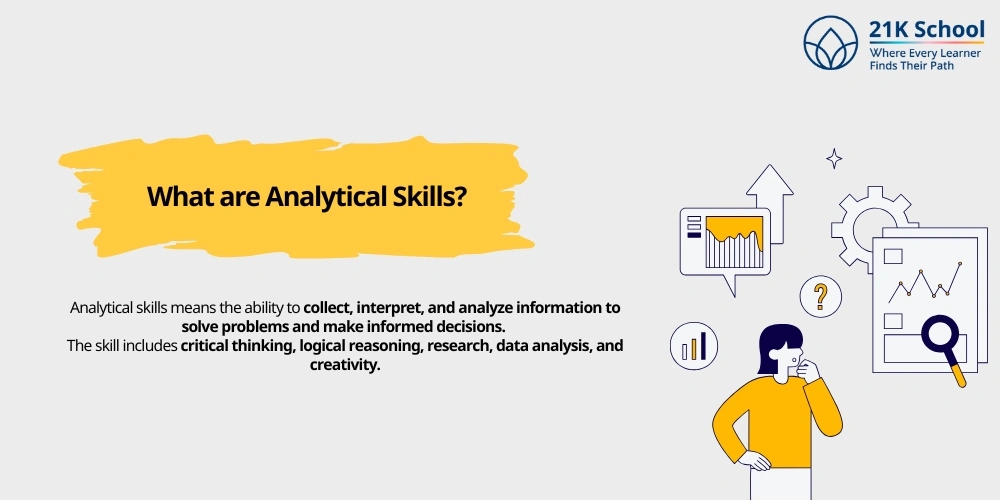
Analytical skills means the ability to collect, interpret, and analyze information to solve problems and make informed decisions.
The skill includes critical thinking, logical reasoning, research, data analysis, and creativity.
This helps students to break down difficult information or data into simpler and small parts to gasp easily.
For example: In problem solving students identify issues, developing solutions, and implementing strategies to address problems.
How to Improve Analytical Skills: Effective Ways
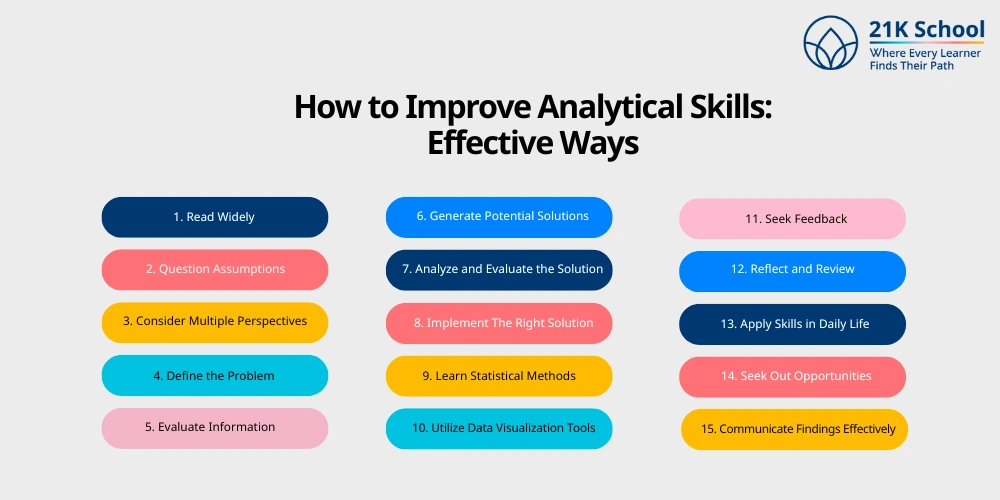
To improve analytical skills students should consider some effective ways such as developing your ability to assess information, identify patterns, and solve problems logically.
Here are how one can enhance those skills:
1. Read Widely
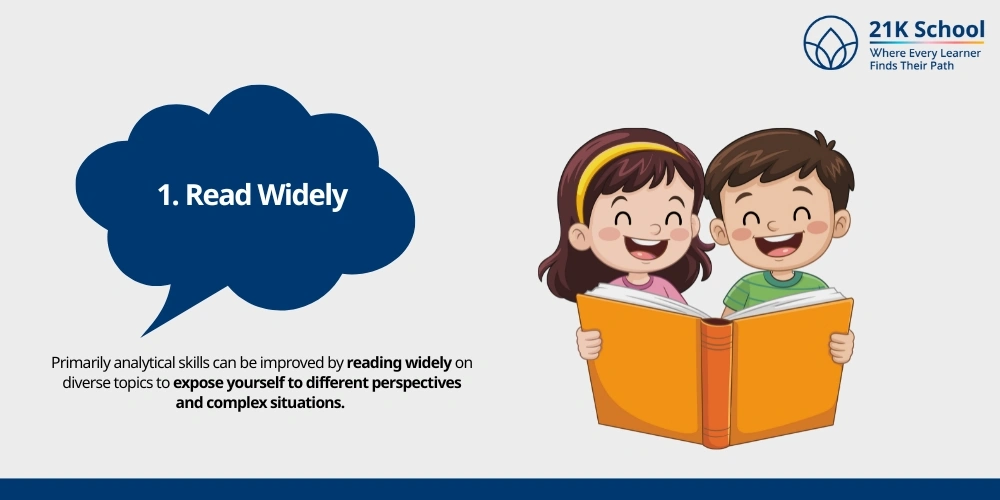
Primarily analytical skills can be improved by reading widely on diverse topics to expose yourself to different perspectives and complex situations.
The process can combine with problem solving, active learning and looking for feedback to enhance the abilities.
2. Question Assumptions
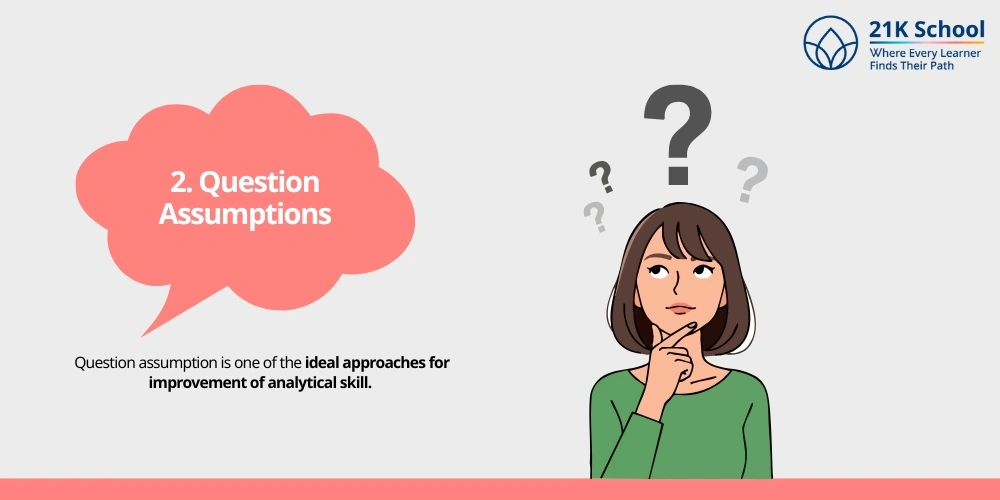
Question assumption is one of the ideal approaches for improvement of analytical skill.
Here, the main objective is to develop a curious mindset, actively questioning assumptions, and engaging in structured problem-solving.
3. Consider Multiple Perspectives
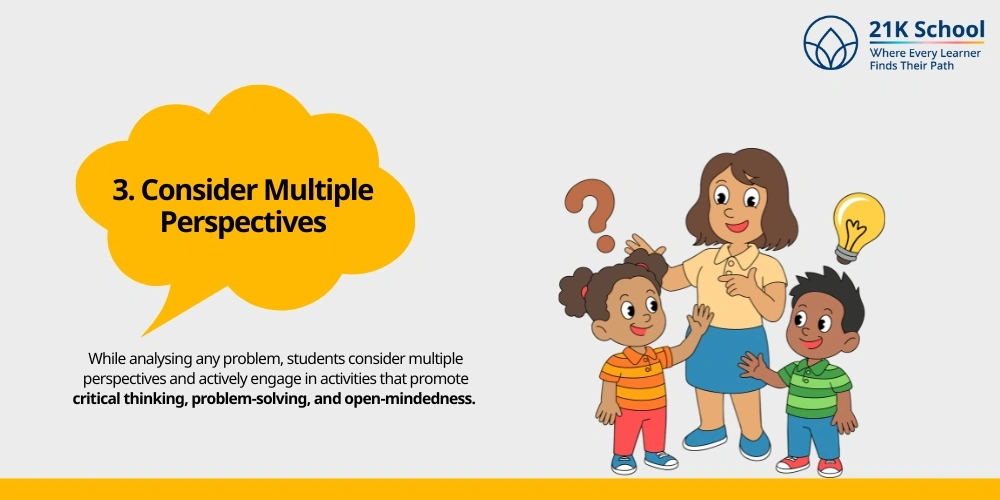
While analysing any problem, students consider multiple perspectives and actively engage in activities that promote critical thinking, problem-solving, and open-mindedness.
This gives more dimension and other remedies to solve the particular problem. It also engages students in discussion and shares their views.
4. Define the Problem
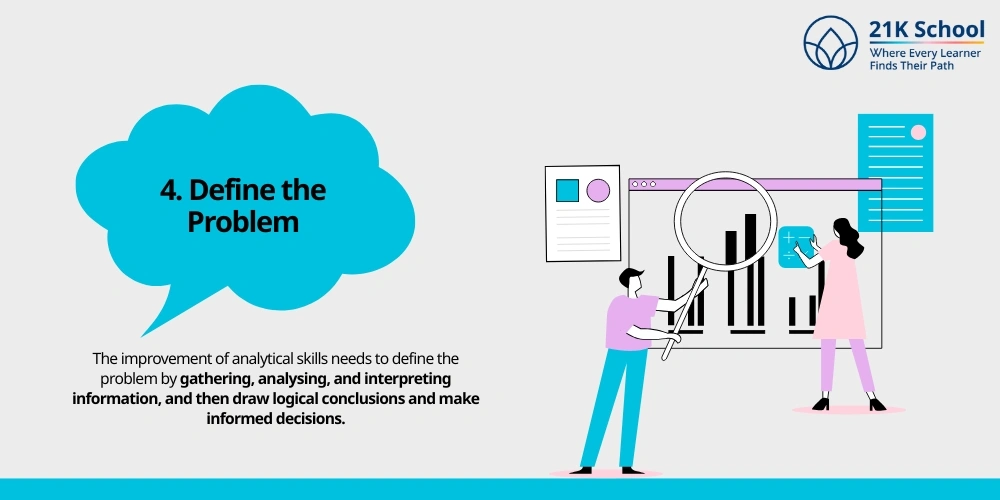
The improvement of analytical skills needs to define the problem by gathering, analysing, and interpreting information, and then draw logical conclusions and make informed decisions.
The process also helps students to improve critical thinking skills, problem solving skills and logical reasoning abilities.
Know how to develop critical thinking skills in students by reading this blog.
5. Evaluate Information
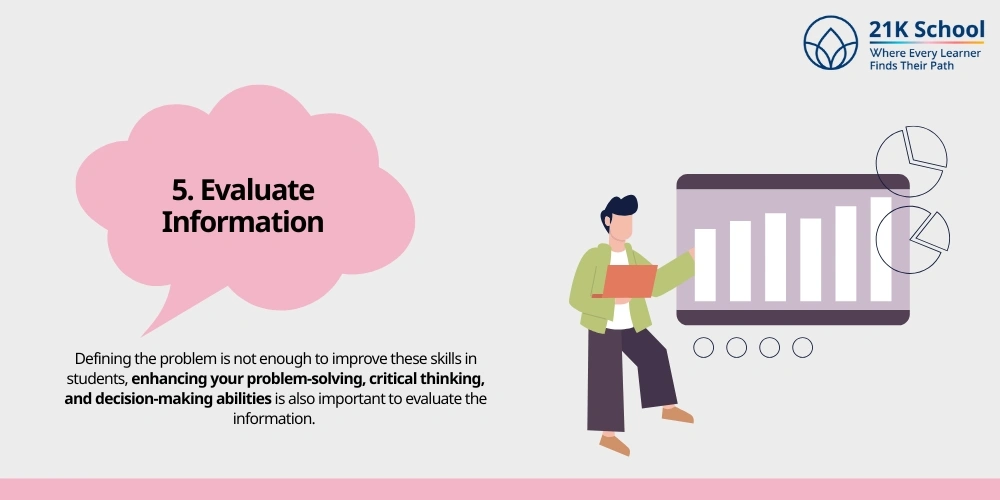
Defining the problem is not enough to improve these skills in students, enhancing your problem-solving, critical thinking, and decision-making abilities is also important to evaluate the information.
To achieve your target read wisely, observe closely and consider multiple prospectus to come to the right conclusion.
6. Generate Potential Solutions
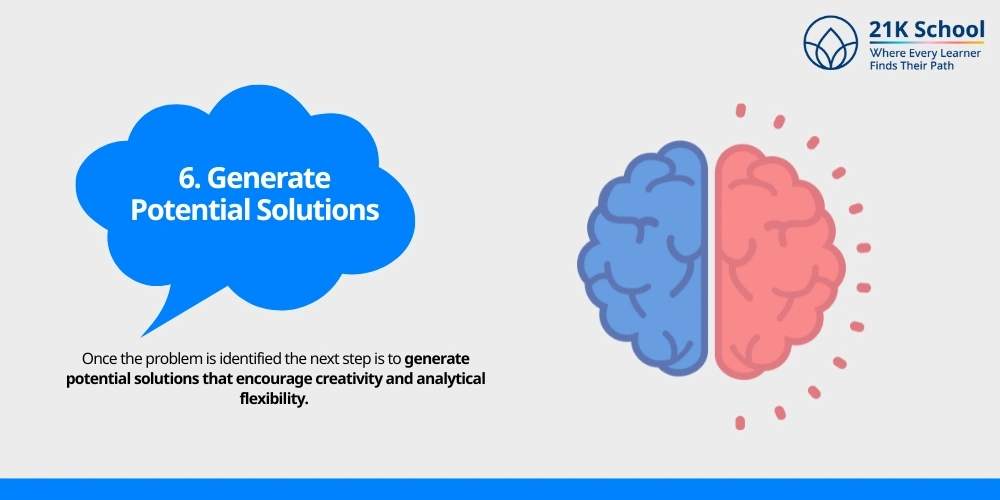
Once the problem is identified the next step is to generate potential solutions that encourage creativity and analytical flexibility.
To improve analytical thinking skills read why creativity is important to child development ?
Remember instead of generating one solution or first idea look for multiple solutions to ensure that it is ideal for the problem.
7. Analyze and Evaluate the Solution
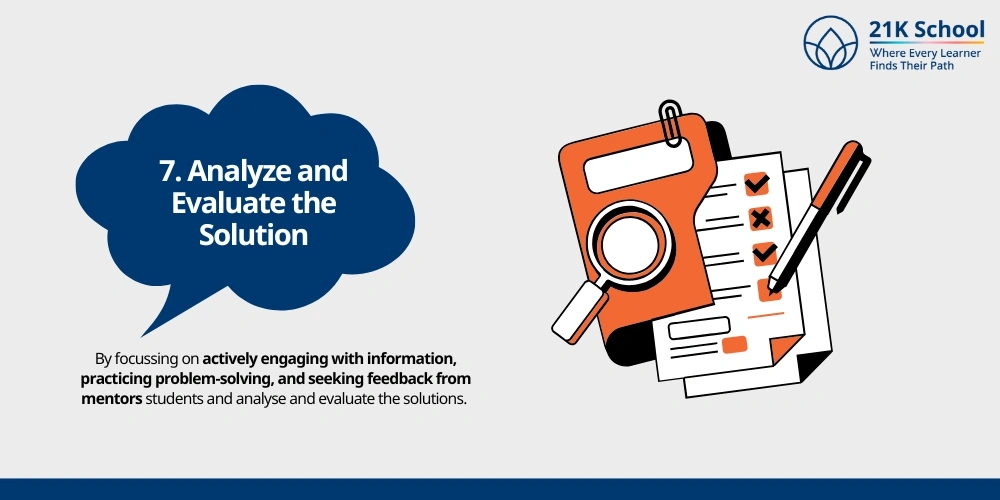
By focussing on actively engaging with information, practicing problem-solving, and seeking feedback from mentors students and analyse and evaluate the solutions.
8. Implement The Right Solution
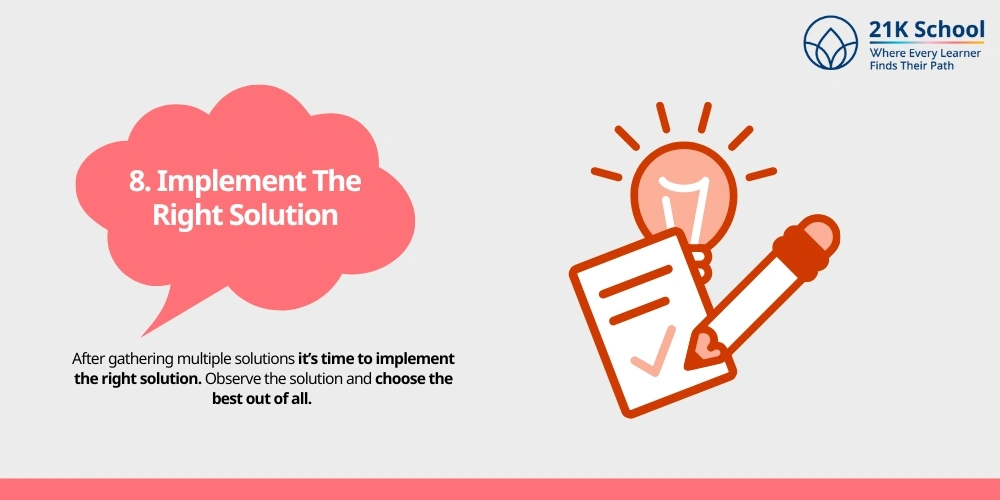
After gathering multiple solutions it’s time to implement the right solution. Observe the solution and choose the best out of all.
By properly understanding the solution, testing according to the problem and adjusting or changing if needed. This trial and error approach helps students to reach out the right solution.
9. Learn Statistical Methods
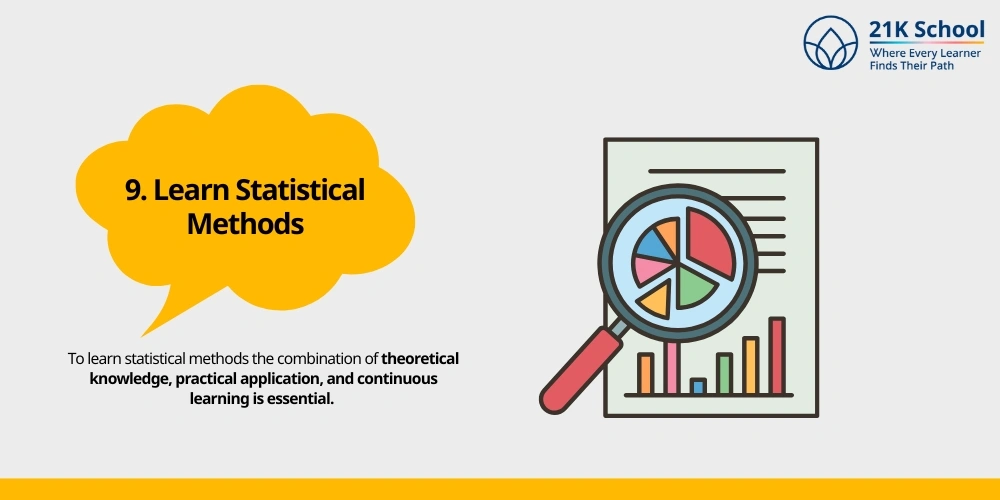
To learn statistical methods the combination of theoretical knowledge, practical application, and continuous learning is essential.
Students should interpret data, detect trends, and make informed decisions for better understanding.
10. Utilize Data Visualization Tools
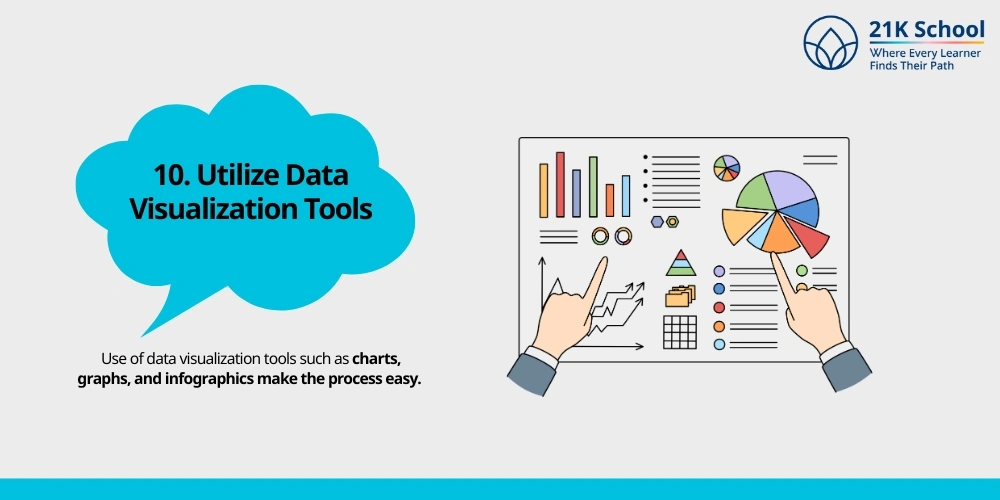
Use of data visualization tools such as charts, graphs, and infographics make the process easy.
It’s time to transform complex data into easily digestible visuals, revealing patterns, trends, and relationships that might otherwise be missed.
11. Seek Feedback
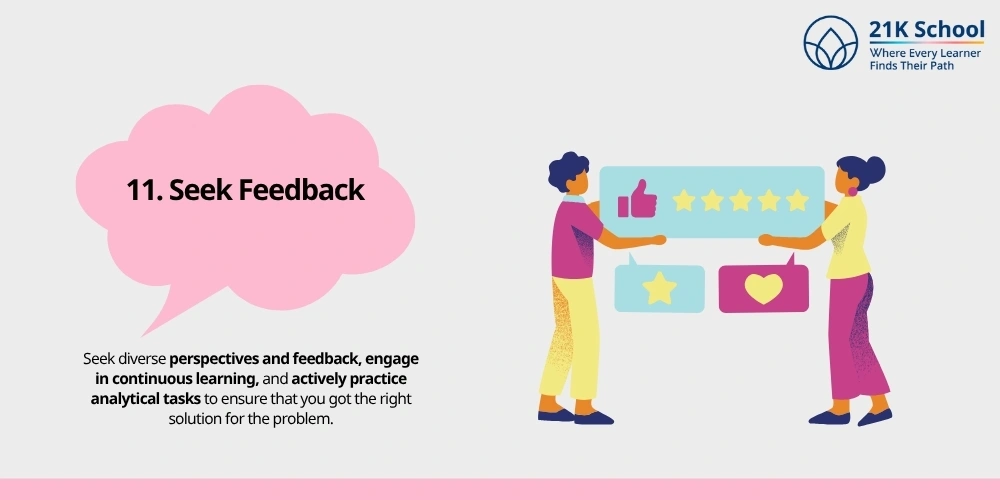
Seek diverse perspectives and feedback, engage in continuous learning, and actively practice analytical tasks to ensure that you got the right solution for the problem.
Students can connect either teachers, parents or elders to get proper feedback and reconstruct solutions if needed.
12. Reflect and Review
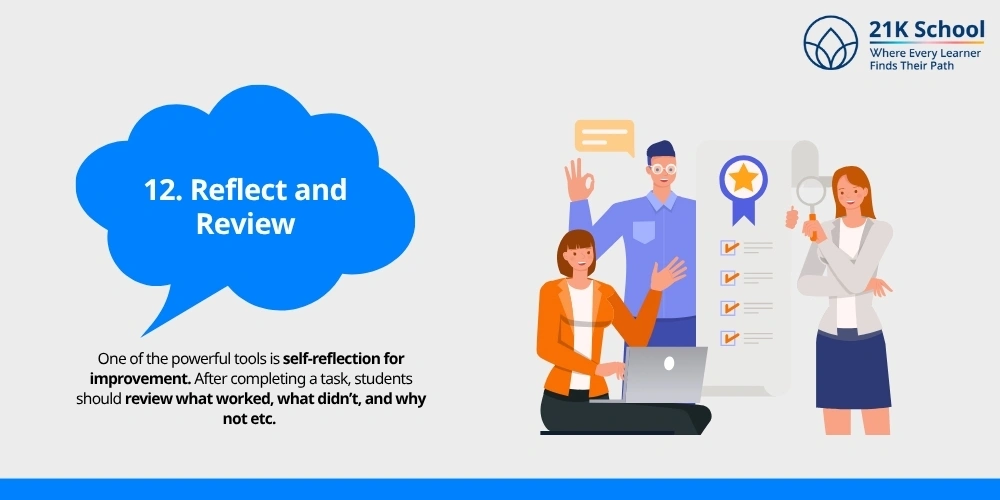
One of the powerful tools is self-reflection for improvement. After completing a task, students should review what worked, what didn’t, and why not etc.
Remember that reflection deepens on learning, highlights areas for growth, and fosters metacognition the ability to think about one’s own thinking. For the overall learner development, it is crucial to combine the analytical skills with the creative thinking skills.
13. Apply Skills in Daily Life
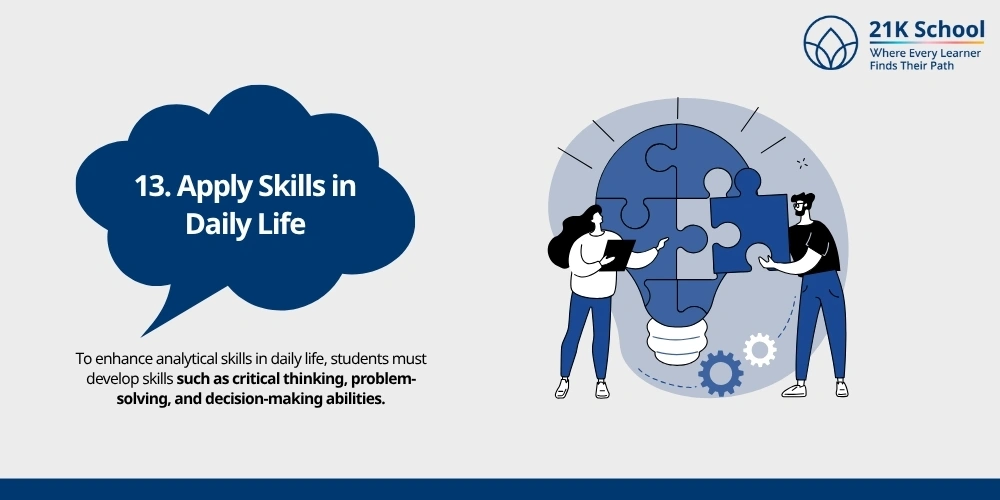
To enhance analytical skills in daily life, students must develop skills such as critical thinking, problem-solving, and decision-making abilities.
To improve analytical thinking skills faster read tips to develop a child’s problem solving and analytical skills.
Encourage students to apply analytical reasoning in real-life situations. For example budget breakdown and debating current policies etc.
14. Seek Out Opportunities

To improve, seek out opportunities such as debate clubs, science fairs or creative writing competitions etc.
These opportunities help students to develop thinking on their feet, defend ideas, and adapt strategies.
15. Communicate Findings Effectively
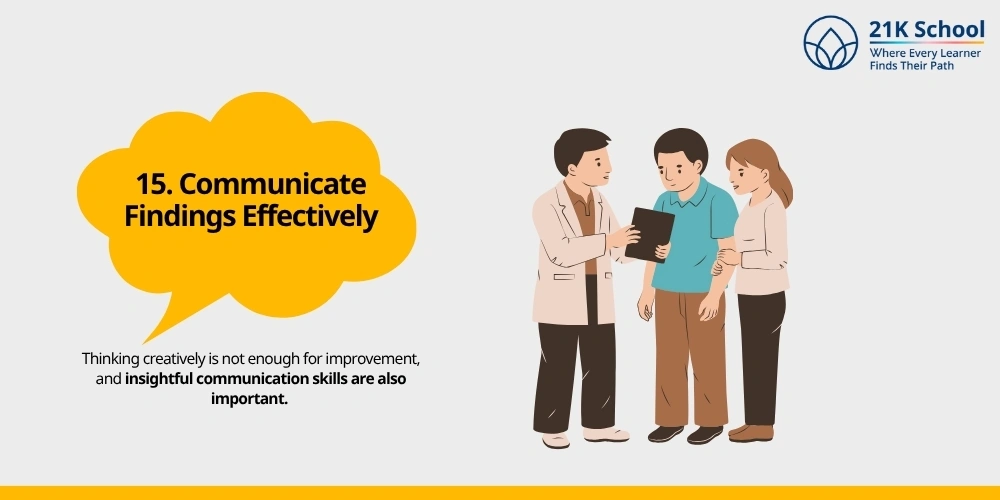
Thinking creatively is not enough for improvement, and insightful communication skills are also important.
Ensure students are actively listening, asking clarifying questions, communicating clearly, and engaging in respectful debate. This helps in positive collaboration and finding solutions.
Tips to Think in Analytical Way as a Student
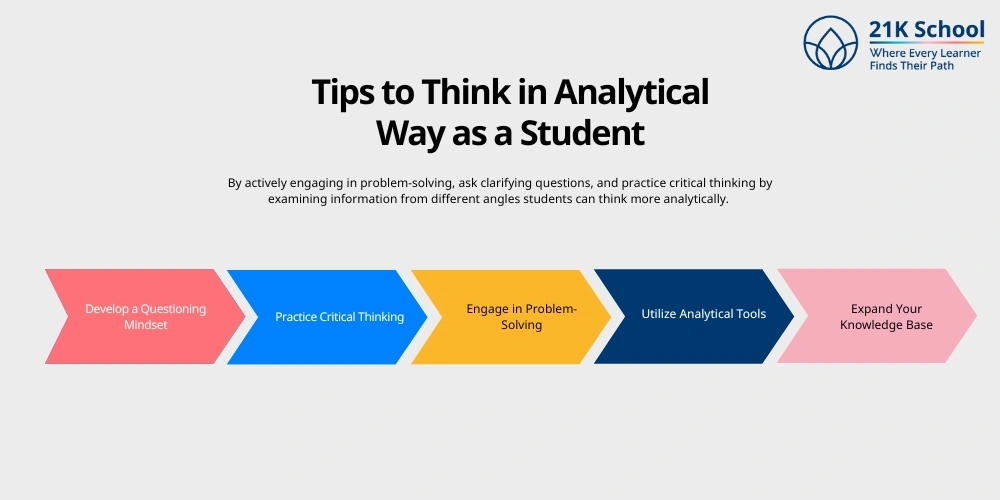
By actively engaging in problem-solving, ask clarifying questions, and practice critical thinking by examining information from different angles students can think more analytically.
- Develop a Questioning Mindset: Students can improve their thinking skill by asking some critical questions such as “Do I understand the concept” or “what are the challenges” etc.
Self questioning helps in critical and analytical thinking while working on problem solving. - Practice Critical Thinking: By analyzing information, consider multiple perspectives and drawing logical conclusions students can practice critical thinking.
- Engage in Problem-Solving: Improve these skills one needs to understand the problem, gathering information, exploring different perspectives, evaluating solutions, and making informed decisions.
This engages students in improving problem solving skills and seeking out other opportunities. - Utilize Analytical Tools: Writing journaling, generating ideas and solutions in a group and using analytical software can let in finding more accurate solutions.
- Expand Your Knowledge Base: Reading books, articles, learning new skills and staying curious will guide students to expand their knowledge base for future use.
Conclusion
Analytical skills in students improve academic performance and real life learning. By encouraging critical thinking, promoting problem-solving activities, educators can nurture sharper, more agile minds.
Improve kids problem solving skills by reading problem solving techniques.
To ensure solutions consistent practice, reflective learning, and the use of technology and collaborative tasks is crucial.
It’s time to foster a learning environment that values curiosity, reasoning, and open dialogue empowers students to think independently and make informed decisions in all aspects of life.

